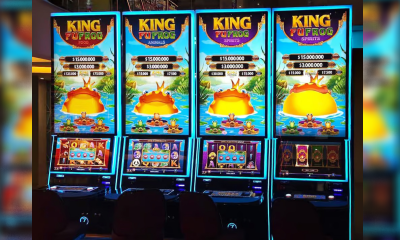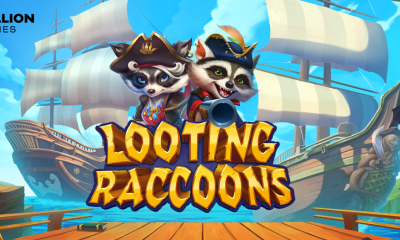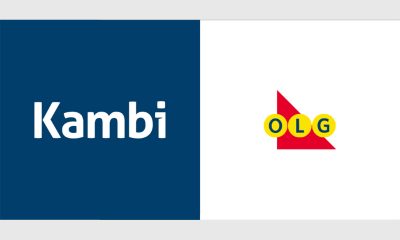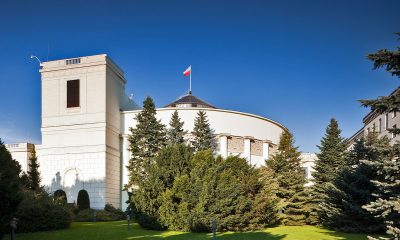Central Europe
The long-awaited opening of the German market has arrived
Catalin Negoita, Commercial Manager at Kalamba Games
The long-awaited German legislation allowing online gaming nationwide finally enters into force this week. Even before fully opening up, the market has become a key focus for many industry players, with a multitude of factors making the potential of the region an attractive proposition.
Firstly, there is the sheer size of the country itself. With a population second only to Russia in Europe and relatively high average earnings, the potential value of the player pool is vast. The second reason is perhaps more subjective, but we have found that German players are fairly easy to satisfy. Their preferences are well established, which makes it straightforward for an online casino supplier to adequately cater for this sizeable new clientele.
Because of the country’s strong history of land-based gambling, classic games that resemble titles found in brick-and-mortar venues with popular themes like ancient Egypt and book games work very well with local players. Taking inspiration from what works in the land-based sector is therefore often a safe bet in Germany. Mobile usage is also a lot higher than your average market because of the good infrastructure so it’s worth considering creating games that are optimised for mobile.
Strict rules and regulations around responsible gaming and player protection have already presented some challenges for the industry with slot suppliers required to make fundamental changes to the makeup of their content.
Operators must adopt a €1 maximum stake limit on online slots, alongside a 5-second minimum duration on slot spins. Jackpots will be banned, removing an important acquisition and retention tool for operators. Monthly deposit limits of €1,000 will also be introduced and players must be offered tools to set spending and time limits, along with cooling-off periods.
These restrictions will influence the shape of the market with the main effect being that retention will have a greater focus than in many other markets with fewer restrictions.
Despite being a hot topic in the industry for quite some time, providers will now be trying even harder to retain more players for longer and will have to be creative in order to succeed. Legislative changes are part of every regulated market and it is key for operators and suppliers to embrace them and try to adapt as best we can. We are known to be a very innovative industry and I’m sure as the market matures, we will see pioneering new ways to acquire and retain players while ensuring maximum player protection.
Basically gamification, customer service and the quality of games in general will be the differentiator in the German market, and that is for both providers and operators to address.
Gambling will become more of a social thing because the maximum limit is so low. It’s not exactly going to be the thrill of winning big – it will be the social aspect and making sure that retention factors, gamification side missions and different functionalities are top notch.
You could say a laser-like focus on promotional tools and social gaming elements, such as those that we are introducing on our own Kalamba Bullseye platform, are going to be very important. Basically, everything that enhances the player experience will be key such as promotional tools, UX elements, and/or in-game gamification features. Similarly, game production values will have to be high and match those of other entertainment media.
At Kalamba, we believe that Germany will be a very strong market. The way to monetise the market will just be a little bit different there. There won’t be VIP players, so the industry will have to adjust to a volume model. Player values will decrease but because of the social acceptance of gaming, and slots in particular, the player numbers will increase and that’s how it will balance itself out over time.
Initially, when the legislation comes into force, we will just have to analyse the player behaviour and see in what direction the market is going and how we can fully capitalise on this new opportunity. Germany will be a market that could completely change with providers having to adapt to the new conditions as there will be a lot of new players entering the market now that it’s completely regulated.
We must work very closely with our partners to figure out the best way to make the player experience as engaging as possible and this will lead us to success in this new and exciting environment.
Powered by WPeMatico
Central Europe
Poland to Classify Gambling Streaming as Serious Crime
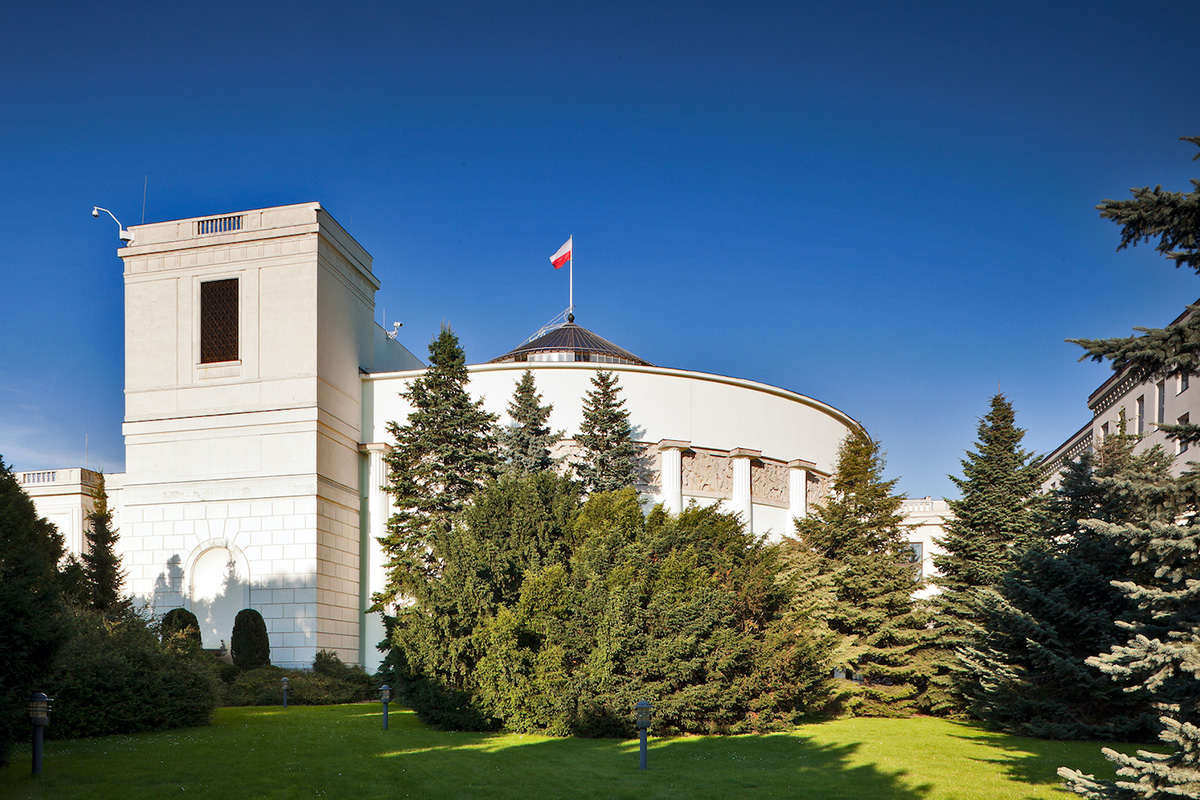
The Polish Parliament is considering a landmark draft law to curb harmful digital content, specifically targeting the phenomenon known as “patostreaming.”
Patostreaming is recognised as a new term to categorise criminal offences related to the broadcasting of online violence, abuse and sexually degrading content.
The proposed legislation would criminalize the broadcasting of violence, abuse, and sexually degrading material. Additionally, the bill seeks to outlaw the promotion of online gambling by social media influencers. By amending the Penal Code, supporters aim to bridge the legal gap between digital behaviour and offline criminal acts, ensuring online offenders face the same accountability as those in the physical world.
The bill carries the backing of ministers of Poland’s new Civic Coalition (KO) government, formed in late 2025 by the union of the Citizens Platform (PO), Modern (Nowoczesna) and the Polish Initiative (iPL).
Supporters call for clearer enforcement powers to treat the online broadcasting of serious criminal acts as a punishable offence, aligning digital conduct with crimes already sanctioned offline.
If adopted, the legislation would introduce prison sentences ranging from three months to five years for individuals who publicly share real or staged content depicting serious criminal acts via online platforms.
The same penalty range would also apply to influencers found to be illegally promoting online gambling activity that remains heavily restricted under Poland’s state-controlled gambling regime.
KO ministers have framed the initiative as part of a broader effort to strengthen online protections for Polish youth, citing rising exposure to violent digital content and illegal gambling promotions across social media platforms.
The post Poland to Classify Gambling Streaming as Serious Crime appeared first on Eastern European Gaming | Global iGaming & Tech Intelligence Hub.
Casino-Groups
Sebastian Jarosch Becomes Head of AI at Casinos Groups
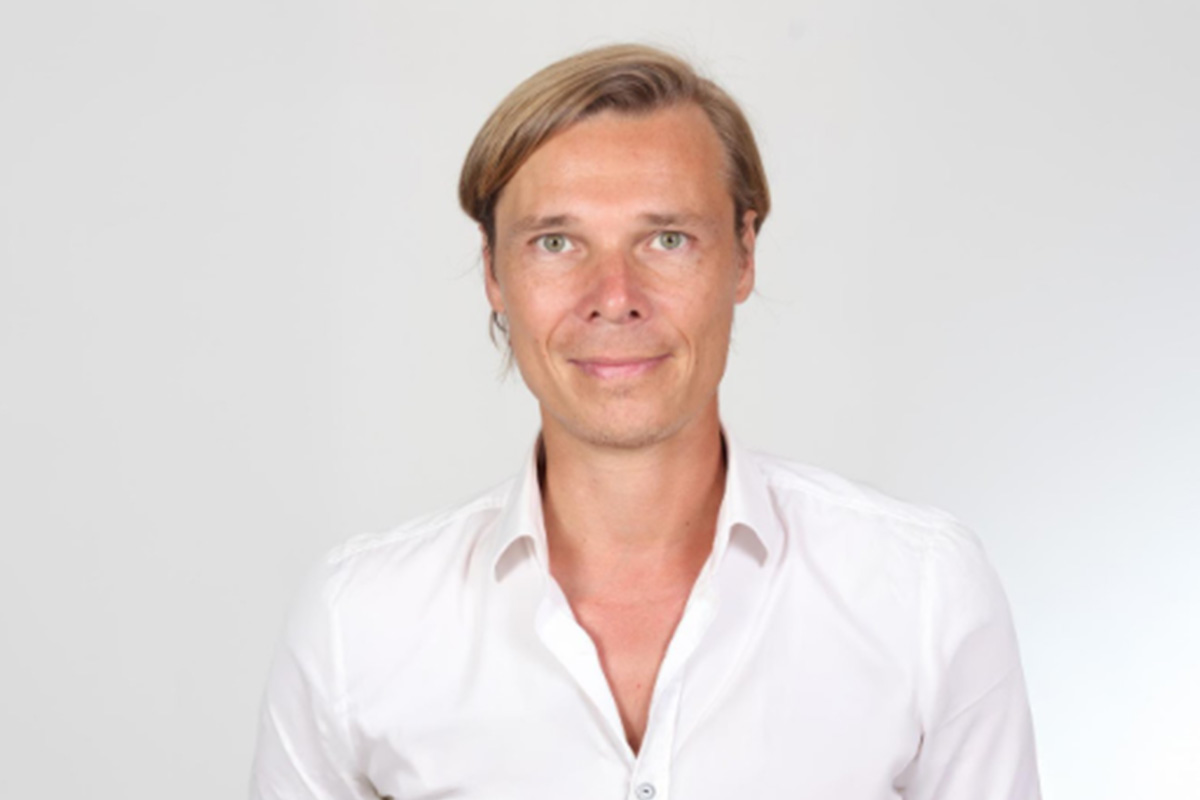
Sebastian Jarosch is no longer solely the founder and managing director of Casino Groups as he is also taking on the role of Head of AI, at least on an interim basis. This personnel decision marks a conscious step towards closer integration of corporate management and technological responsibility.
In future, Jarosch will not only be responsible for the strategic direction of the company, but also for the further development of the AI systems that already form a central part of the product landscape. Casino Groups is one of the best-known platforms, which has been using and continuously developing an AI-supported rating system for online casinos for some time.
The decision to anchor the role of Head of AI directly at management level was a conscious one. Artificial intelligence now influences almost all areas of the affiliate business, from content structures and data analysis to regulatory documentation and product logic. Such a development requires decisions that bring together economic objectives, technological possibilities and legal frameworks.
Sebastian Jarosch brings this perspective from years of experience in the iGaming sector. As an entrepreneur, he is familiar with economic dependencies as well as the challenges of increasing regulation. The additional responsibility in the AI area makes it possible to set technological courses more quickly, define priorities more clearly and establish innovation as an integral part of corporate management.
The new role of Head of AI fits in perfectly with current developments in the iGaming market. Increasing regulatory requirements, rising acquisition and content costs, and the growing influence of AI-powered search systems are changing the economic fundamentals of the affiliate business. Visibility is no longer achieved solely through reach, but through authority, consistency and verifiable quality.
With this appointment, Casino Groups is sending a clear signal to the outside world. Affiliate companies are increasingly being valued like media or technology companies. Partners and investors are placing greater emphasis on compliance, data competence and sustainable product development. The bundling of management and AI responsibility strengthens the company’s credibility in these areas.
At the same time, Casinos Groups is positioning itself as a player that does not delegate innovation, but actively drives it forward. The interim nature of the role creates space for further development and adaptation without diluting the strategic ambition. For the industry as a whole, this step underlines that AI expertise has arrived at the management level.
The role of Head of AI forms the organisational foundation for this development. It ensures that technological innovation, editorial standards and economic objectives are interlinked. Casino Groups is thus pursuing a clear line: technology as a tool, people as an authority and quality as a connecting element.
The post Sebastian Jarosch Becomes Head of AI at Casinos Groups appeared first on Eastern European Gaming | Global iGaming & Tech Intelligence Hub.
Birgit Wimmer
Birgit Wimmer Named Chairwoman as NOVOMATIC AG Reshapes Supervisory Board
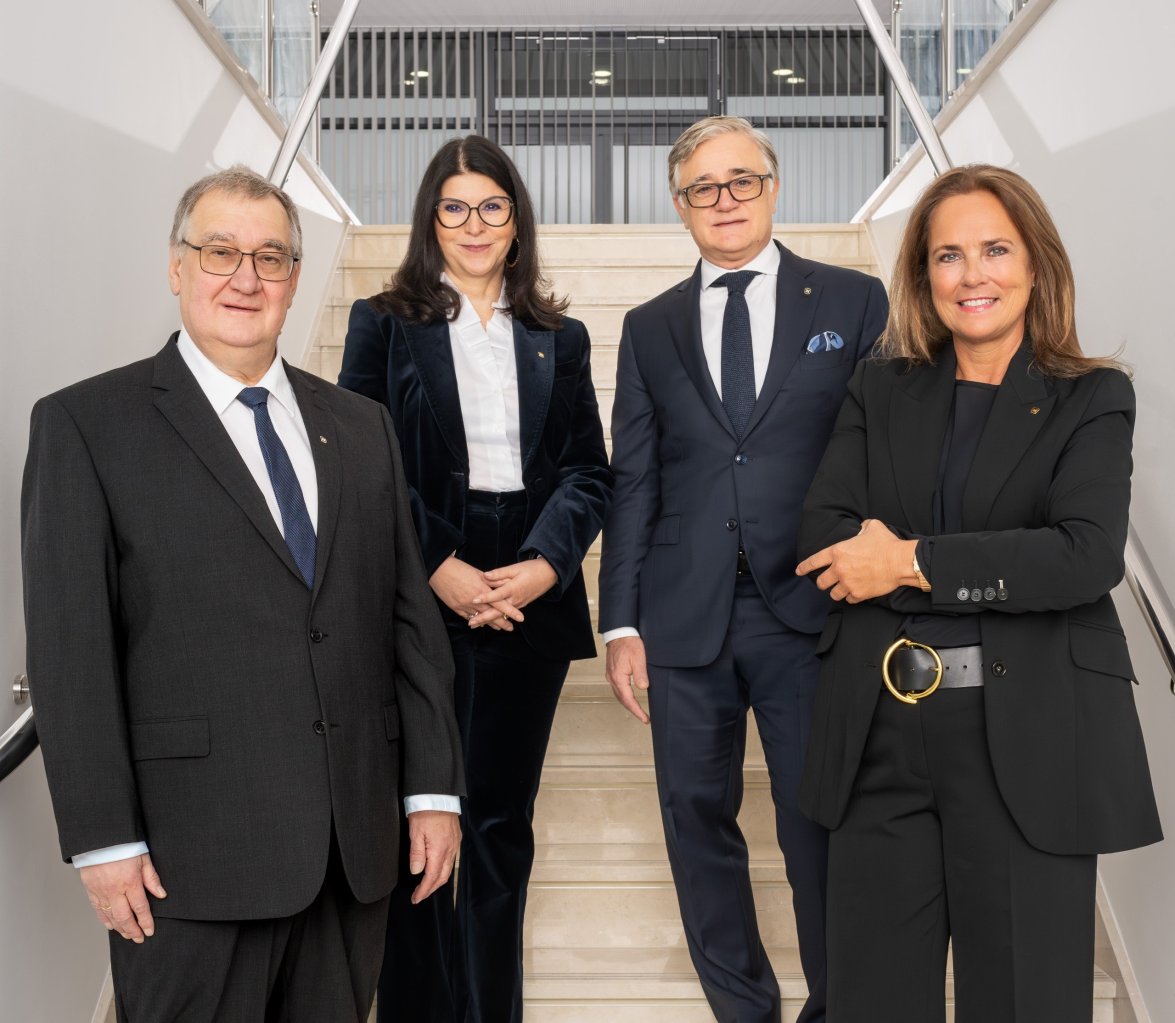
“As Chairwoman of the Supervisory Board, I look forward to working together with my colleagues on both the Supervisory Board and the Executive Board as we help to successfully shape the Group’s strategic and sustainable development,” says Birgit Wimmer.
Dr. Haig Asenbauer, an internationally experienced lawyer with particular expertise in cross-border M&A transactions, company reorganization, and complex investment structures, was elected to serve as Deputy Chairman. Martina Flitsch retains her position as a Member of the Supervisory Board. She has many years of experience in international group structures and in providing strategic and legal support for corporate investments. Dr. Robert Hofians, a recognized finance and capital markets expert who also has extensive experience in the fields of governance and regulation in his roles as a professor and public accountant, also remains a Member of the Supervisory Board.
As of January 1, 2026, the Supervisory Board of NOVOMATIC AG is now composed as follows:
- Birgit Wimmer, MSc., MBA (Chairwoman)
- Dr. Haig Asenbauer (Deputy Chairman)
- Martina Flitsch (Member)
- Dr. Robert Hofians (Member)
The post Birgit Wimmer Named Chairwoman as NOVOMATIC AG Reshapes Supervisory Board appeared first on Eastern European Gaming | Global iGaming & Tech Intelligence Hub.
-

 Latest News6 days ago
Latest News6 days agoBMM TESTLABS GRANTED NEW LICENSE IN BRAZILIAN STATE OF MINAS GERAIS, EXPANDING ITS PRODUCT TESTING AND CERTIFICATION FOOTPRINT IN BRAZIL
-

 BMM Innovation Group6 days ago
BMM Innovation Group6 days agoBMM Testlabs Secures Minas Gerais License, Expanding iGaming and Sports Betting Certification in Brazil
-

 Colombia7 days ago
Colombia7 days agoZITRO INSTALLS OVER 70 MACHINES ACROSS GRUPO ALADDIN CASINOS IN COLOMBIA
-

 Conferences7 days ago
Conferences7 days agoChampions Club Bound for Dubai
-

 Brasil on Track5 days ago
Brasil on Track5 days agoODDSGATE LAUNCHES “BRASIL ON TRACK”, A STRATEGIC PLATFORM FOR NAVIGATING BRAZIL’S REGULATED IGAMING MARKET
-

 Latest News6 days ago
Latest News6 days agoMillion Games Unveils Looting Raccoons: A Charming Pirate Slot Packed with Features
-

 Canada7 days ago
Canada7 days agoKambi Group Becomes the Official Sportsbook Partner of Ontario Lottery and Gaming Corporation
-

 Central Europe7 days ago
Central Europe7 days agoPoland to Classify Gambling Streaming as Serious Crime








